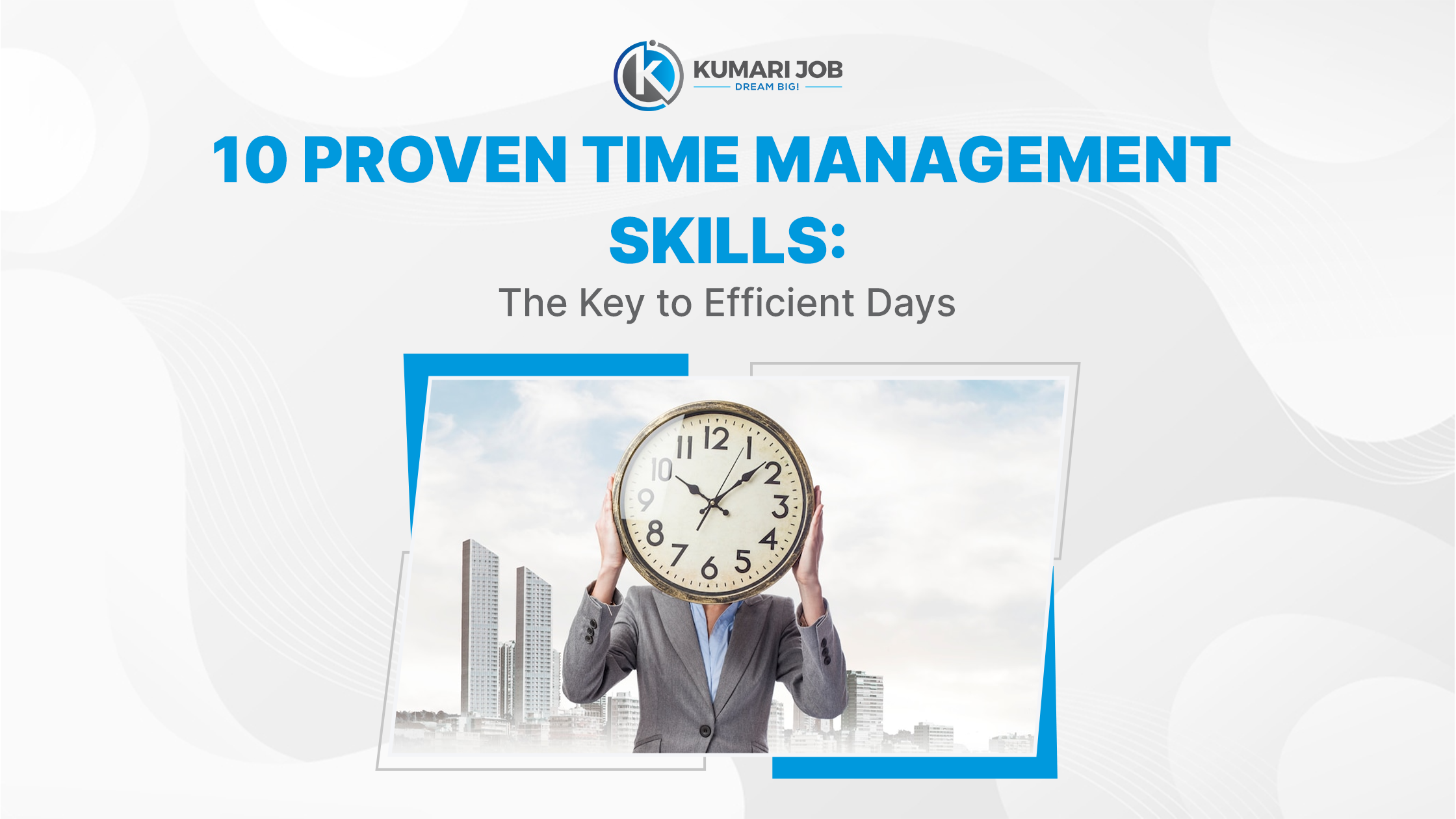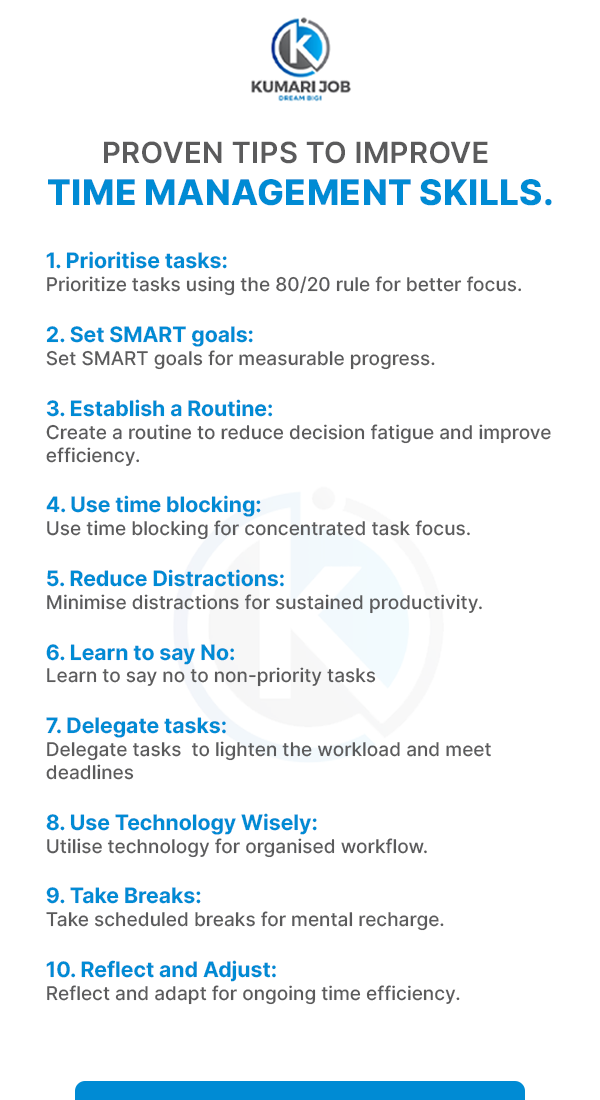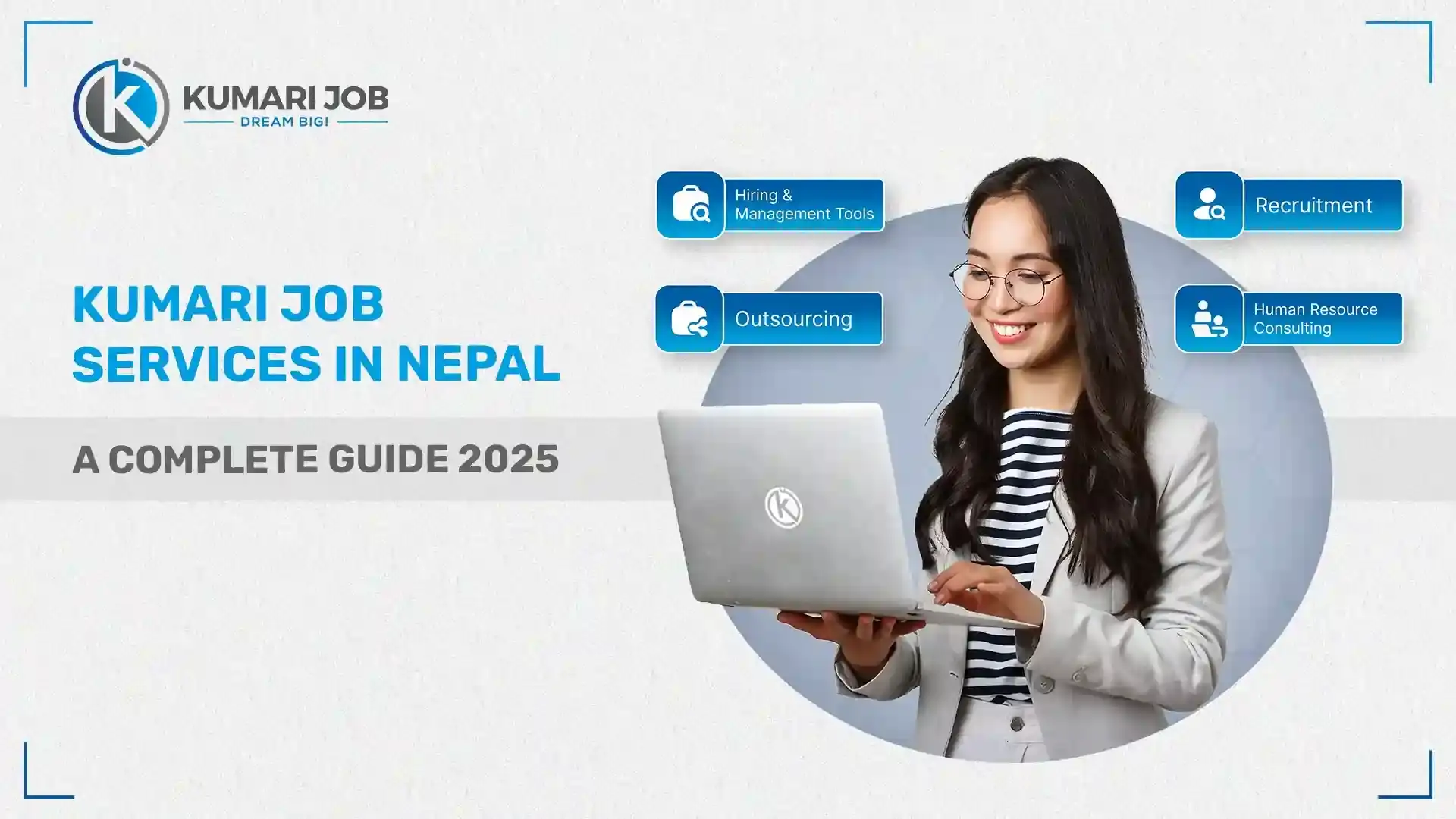
Introduction
"The bad news is that time flies.
"The good news is you're the pilot," said Michael Altshuler.
According to Wikipedia, time management is the process of planning and exercising conscious control over time spent on specific activities - significantly to increase effectiveness, efficiency, and productivity. Time management is a technique for making better use of your time. To dial it down, time management is getting everyday tasks done efficiently and with better results.
Have you ever felt that there aren't enough hours in the day to get everything done? You're not alone. Mastering time management has become critical in our modern society, where demands constantly pull us in numerous directions. Excellent time management skills can improve job satisfaction, reduce stress, and positively impact general well-being. We need time management skills in today’s fast-paced world; let’s discuss.
In this blog
Effective Time Management
“Time management is life management." - H. Jackson Brown Jr.
Effective time management isn't just about keeping an eye on the watch but taking necessary steps to meet your work demands. Mastering effective time management is essential for both personal and professional success. Managing your hours skillfully increases productivity, reduces stress, and gives you a sense of accomplishment.
At its core, effective time management entails making purposeful choices about how you spend your time. Setting clear objectives, focusing on tasks that match your goals, and eliminating time-wasting activities are all part of this. It's about taking charge of your day instead of letting it rule you. This serves as a road map for your day, allowing you to focus on the tasks that truly matter. By distinguishing between important and urgent, you can ensure that your efforts are directed toward meaningful progress.
Developing good time management skills optimises your work and shapes your life's course. After all, time management represents how you allocate your most valuable resource.
Benefits of Time Management
Time management isn't about adding extra hours to your day but maximising your hours. Effective time management offers multiple advantages in many areas of our lives. For starters, it increases productivity by allowing us to prioritise tasks and efficiently allocate time, resulting in higher output with lesser time allocation. Second, it reduces stress by providing a structured framework, reducing last-minute rushes and the anxiety of missed deadlines or overlooked responsibilities. Consider the relief of not having tasks constantly on your mind.
Furthermore, it builds a healthier work-life balance by allocating time for work, personal activities, and relaxation, ultimately preventing exhaustion and improving overall well-being. This methodical approach enhances focus and concentration, reducing distractions and producing higher-quality work.
On a personal level, it strengthens relationships by allowing for quality time with family and friends. Effective time management improves relationships by allowing for more quality time spent with loved ones. It favours meaningful interactions, reduces stress, and creates trust and dependability. As a result, individuals form deeper connections and form stronger bonds. Furthermore, better time management in the workplace can lead to less stress and a more balanced work-life dynamic. Consider Bill Gates and Sheryl Sandberg, who credit their achievements to their time management mastery.
Let’s take the example of Tenzing, who successfully integrated time management into business and personal life.
- Consider Tenzing, a busy professional who must balance a demanding career, household responsibilities, and personal interests.
- Tenzing’s success is due to her systematic approach to time management.
- She begins her day by listing her duties and ranking them according to their priority and deadlines.
- Tenzing also employs time blocking, designating specific time slots for concentrated work. This not only keeps her on track but also keeps her from becoming burned out.
- Tenzing organises her day so that she can meet her commitments while still pursuing her interests.
How did she master it?
Mastering effective time management requires an in-depth understanding of its fundamental principles. Let's look at three key insights that show the path to mastery.
The image is placed here.
1.80/20 rule (Pareto principle): About 80% of results come from 20% of efforts.
2. Distraction Impact: On average, it takes 23 minutes and 15 seconds to regain focus after a distraction.
3. Multitasking Decreases Productivity: Multitasking can lead to a 40% decrease in productivity.
|
Principle/Techniques |
How does it work? |
|
Pareto principle: 80/20 rule |
The Pareto Principle, named after economist Vilfredo Pareto, commonly known as the 80/20 rule, states that around 80% of outcomes are generated by only 20% of work. The belief is that in many situations, a small proportion of inputs or efforts leads to a significant proportion of results. For example, 80% of earnings are frequently generated by 20% of clients. |
|
Distraction impact |
When we get distracted, it takes a considerable amount of time to regain our original level of focus. On average, it takes 23 minutes and 15 seconds to fully recover from a distraction and return to the same concentration level we had before being interrupted. |
|
Multitasking |
Multitasking, or attempting to perform multiple tasks at the same time, may result in a negative impact on productivity. According to studies, this practice can result in a 40% decrease overall efficiency and effectiveness. When people attempt to multitask, their attention becomes divided, decreasing the quality and accuracy of their work. |
Tenzing successfully harmonises her diverse responsibilities and aspirations by integrating time management principles, particularly in a business context, optimising productive time, and strengthening time management skills.
10 proven Tips on how to improve time management
If you run out of time, it could be due to distractions or a lack of understanding of effective time management. Taking charge of your time is one of the first steps toward achieving your targets. If you want to improve your time management, these ten tried-and-true tips can help.
1. Prioritise tasks
Identifying the most significant tasks is crucial for effective time management. Not all jobs are created equal, and knowing which ones contribute the most to your goals allows you to prioritise your energy where it is most needed. Applying strategies like the 80/20 rule, where a small proportion of inputs or efforts creates a significant balance of results, you can direct your efforts toward the most meaningful actions. According to Investopedia, In business, the goal of the 80-20 rule is to identify and prioritise potentially productive inputs. For instance, once managers identify factors critical to their company's success, they should focus on them. This method keeps you from becoming overwhelmed by minor activities and keeps you focused on what truly matters.
According to LinkedIn, Time management in the workplace is influenced by priorities. What needs to be done first, and when it needs to be completed? Time management goals ensure that your limited time and effort are directed toward tasks that produce the best results.
2. Set SMART goals
A cornerstone of time management aligned with the principles of time organisation and time management goals is setting clear and detailed plans that are specific, Measurable, Achievable, Relevant, and Time-bound (SMART). You can transform broad goals into clear and actionable steps through this framework. Instead of aiming vaguely to "improve time management," a SMART goal would be to "dedicate 30 minutes every morning to prioritise tasks and create a daily schedule." This level of accuracy provides clear direction and enables measurable progress.
SMART goals provide a framework for your efforts, making it easier to devote time effectively. These objectives serve as guiding stars, allowing you to track progress and stay motivated. You obtain a clear sense of direction and purpose by breaking down large tasks into minor, manageable actions, eventually contributing to improved time allocation.
3. Establish a Routine
Adopting a daily routine, integrated with the concepts of time management skills at the workplace and utilising productive time, gives your day structure and consistency. Patterns provide a consistent framework for your duties and activities, decreasing decision fatigue and optimising energy. Firstly, it promotes time efficiency by constantly reducing the need to decide what to do next. This smooth transition between activities reduces distractions and enables a more focused workflow. It also helps to develop strong time management skills, which improves one's ability to estimate task durations accurately.
When you stick to a pattern, your mind becomes conditioned to perform specific things at specified times, making them easier to complete. This approach not only guarantees that vital activities are conducted continuously, but it also frees up mental space for more creative pursuits.
4. Use time blocking
Time blocking involves allocating dedicated blocks of time to specific tasks or projects. You can minimise multitasking and boost concentration by giving focused intervals for different tasks. Time blocking distinguishes between distinct tasks, preventing them from blending into one another. It is beneficial at work, where demands and responsibilities can vary. Setting aside specific blocks of time for particular projects or tasks ensures that they receive the focused attention they require for successful completion, aligning with your time management goals. Whether you use a digital calendar or a paper planner, the important thing is to stick to your schedule and honour each block of time.
It also guarantees that important jobs receive the attention they need and aids in the prevention of procrastination by establishing clear start and end times.
5. Reduce Distractions
Reducing interruptions is essential for maintaining focus throughout work periods. Distractions can severely hamper productivity, resulting in fragmented work sessions. Silencing notifications, shutting down unused browser tabs, and designating distraction-free zones are all part of creating a focused work environment. Set specific "do not disturb" times, silence non-urgent notifications, and designate a dedicated workspace. Use productivity tools and apps that block or restrict access to distracting websites during concentrated work sessions. These strategies contribute to practical time organisation.
Cultivating the habit of mindful, single-tasking work strengthens your ability to stay on track even more. By carefully limiting distractions, you create an environment favourable to intense, uninterrupted work, resulting in increased efficiency.
6. Learn to say No
Setting limits and saying no to projects that do not align with your priorities is a valuable skill that will save you time and energy. Fear of disappointing others frequently leads to overcommitting, resulting in an overcrowded schedule.
According to Forbes, One of the most valuable lessons you can learn is when to say “yes” or “no” in your career and life.
Focus on what is truly important by distinguishing between chores that contribute to your goals and those that do not. Tasks that do not align should be politely declined.
7. Delegate tasks
Recognising work that can be delegated to others indicates good time management. Delegating duties to others helps you focus on those that demand your skills and attention. This reduces your workload and ensures that tasks are completed promptly and effectively. When delegating, it is critical to assess each task and match it with the skills and expertise of the appropriate team member. Clear instructions, expectations, and timelines are essential for effective communication.
Regular check-ins and feedback sessions help maintain accountability and ensure delegated tasks are completed on time. Delegation does not imply giving up control; instead, it empowers your team and properly divides responsibilities.
8. Use Technology Wisely
Technology tools and apps can significantly enhance your time management abilities. Technology, from task management apps to calendar software, can help you plan your workflow, organise projects, and send reminders. Use them to automate repetitive tasks such as sending emails or creating reports. This enables you to devote more time to higher-value activities. However, staying aware of the vast array of available tools is critical. Choose a set of critical applications that meet your specific requirements and learn how to use them effectively.
Accept tools that support your preferred work style and allow for seamless collaboration. However, avoid becoming overwhelmed by excess digital tools; choose only a few that enhance efficiency.
9. Take Breaks
Short breaks are vital for maintaining attention and avoiding boredom. Engaging in work for extended periods might lead to decreased concentration and creativity. Scheduled breaks help your mind recharge, which improves overall productivity. According to Nivati, Most experts recommend taking breaks every 25 to 30 minutes.
Consider the Pomodoro Technique, where you work for some time and then take a short break. These breaks refresh your thoughts and save you from becoming mentally exhausted.
10. Reflect and Adjust
Evaluating your time management strategies to improve regularly is critical.
Examine how you spend your valuable time and determine whether the results align with your time management goals and aspirations. This self-examination allows you to identify areas where changes may be required. If specific techniques produce less-than-desired results, feel free to change direction. Being adaptable and open to change is a sign of good time management. It's an ongoing process that requires the willingness to experiment and evolve.
By embracing flexibility, you can make real-time adjustments to make more efficient and productive use of your time.
Time management techniques at work
Mastering effective time management techniques is the first step toward increasing workplace productivity. Let's look at some practical strategies for making the best possible use of your workday.
- Eisenhower Matrix
The Eisenhower Matrix, or the Urgent-Important Matrix, is a simple decision-making tool that aids in job prioritisation based on urgency and importance. It divides work into four sections:
Urgent and Important (Do First)
This is the first section of the Eisenhower matrix, which entails that Urgent and Important task requires immediate focus and attention.
- In this time allotment section, your task is time-sensitive and essential. They need your immediate attention to ensure things go smoothly.
- They require immediate attention to avoid undesirable outcomes.
- Participants are advised to prioritise and complete these tasks immediately.
- Examples: Projects with tight deadlines, emergencies, and urgent client needs.
Important but Not Urgent (Schedule)
This is the second section of the Eisenhower matrix, which entails that the Important but not Urgent task does not require immediate attention but significantly impacts your long-term success and accomplishments.
- In this section of time allotment, the tasks that you are doing are significant for your long-term goal and success.
- They don't require immediate action but contribute to your overall success.
- Participants are advised to schedule a particular time to work on these activities.
- Examples: Planning, goal setting, skill development, and relationship building.
Urgent but Not Important (Delegate or Eliminate):
This is the third section of the Eisenhower matrix, also called Urgent but Not Important tasks, which presents a unique challenge in time management. While they demand immediate attention, they may not always align with your goals and priorities.
- This time allotment section comprises time-sensitive tasks that may not be aligned with your goals.
- Consider assigning these tasks to others to save time and focus on another essential task.
- Alternatively, consider whether any tasks can be removed entirely.
- Examples: Routine emails, minimal disruptions, and work that may be delegated.
Neither Urgent nor Important (Do Last or Avoid)
This is the last section of the Eisenhower matrix. This section of tasks neither require immediate action nor directly impact your primary objectives and goals.
- These activities are neither time-sensitive nor relevant to your objectives.
- They should be reduced, as they frequently serve as distractions.
- Afterwards, take care of the most critical issues.
- Examples: Social media browsing, doing simple tasks, etc.
In conclusion, the Eisenhower Matrix is a structured approach to time management that enables individuals to prioritise tasks based on their urgency and importance.
Individuals gain clarity on the nature of their responsibilities by categorising tasks into four distinct sections. This method enables them to allocate time and resources effectively, increasing productivity and goal attainment.
2. Pomodoro techniques
The Pomodoro technique uses a timer to break work into intervals, which involves 25-minute focused work intervals separated by short breaks. How to implement it:
- Set Clear Goals: Define specific tasks you want to complete.
- Set the timer: Set a timer for 25 minutes (this is one "Pomodoro").
- Working Hard: During the Pomodoro, concentrate only on one task. Avoid any interruptions or distractions.
- Finish the Pomodoro: When the timer goes off, mark a check on a piece of paper to indicate the end of one Pomodoro.
- Take a Quick Break: Take a 5-minute break to rest and recharge your batteries.
- Repeat: Repeat the process. Take a more extended break (typically 15-30 minutes) after completing four Pomodoros.
- Examine and Reflect: Review what you've accomplished after each set of Pomodoros and adjust your tasks as needed.
- Stay flexible: Adjust Pomodoro lengths and break times to maximise productivity and comfort.
- Remove Distractions: To maximise focus, keep interruptions to a minimum during each Pomodoro.
- Maintain Your Commitment: Consistency is essential. Stick to the technique and resist the urge to skip breaks or extend Pomodoros.
- Adjust Your Workflow: Adapt the technique to your working style. Shorter Pomodoros may be more effective for some, while longer intervals may be more effective for others.
- Utilise Tools and Apps: Use Pomodoro timer apps or physical timers to keep track of your intervals.
Remember that the Pomodoro Technique is flexible, and the timings can be adjusted to suit your preferences and tasks. It is intended to improve focus, productivity, and mental freshness throughout your work sessions
Conclusion
As we conclude our exploration of time management, remember that time is a limited and irreplaceable resource. The abilities you've gained here have the potential to change the way you approach each day. By mastering time management, you make the most of your moments and build a life aligned with your interests and goals. It's time to take charge of your time and make purposeful choices that will lead to success and fulfilment.
Read more related articles at career tips: Blogs/Career tips.
Frequently Asked Questions
Procrastination can be overcome by breaking activities down into smaller pieces, setting deadlines, and establishing a focused work environment.
- To balance work, personal life, and self-care:
Set clear boundaries
Develop a flexible schedule.
Prioritise self-care.
In short, the key to combining work, personal life, and self-care is to set limits, create a flexible schedule, and prioritise self-care like any other significant activity.
Although results vary, continuous practice can lead to noticeable gains in just a few weeks. Constant self-evaluation and correction are essential for progress.
Prioritise tasks using approaches such as the Eisenhower Matrix, also known as the Urgent-Important Matrix, which is a simple decision-making tool that helps in job prioritisation based on urgency and importance and sets up dedicated time blocks for each activity.

.jpeg)







Loading Comments...